
The Truth About 'Forever Chemicals' in Your Sparkling Water
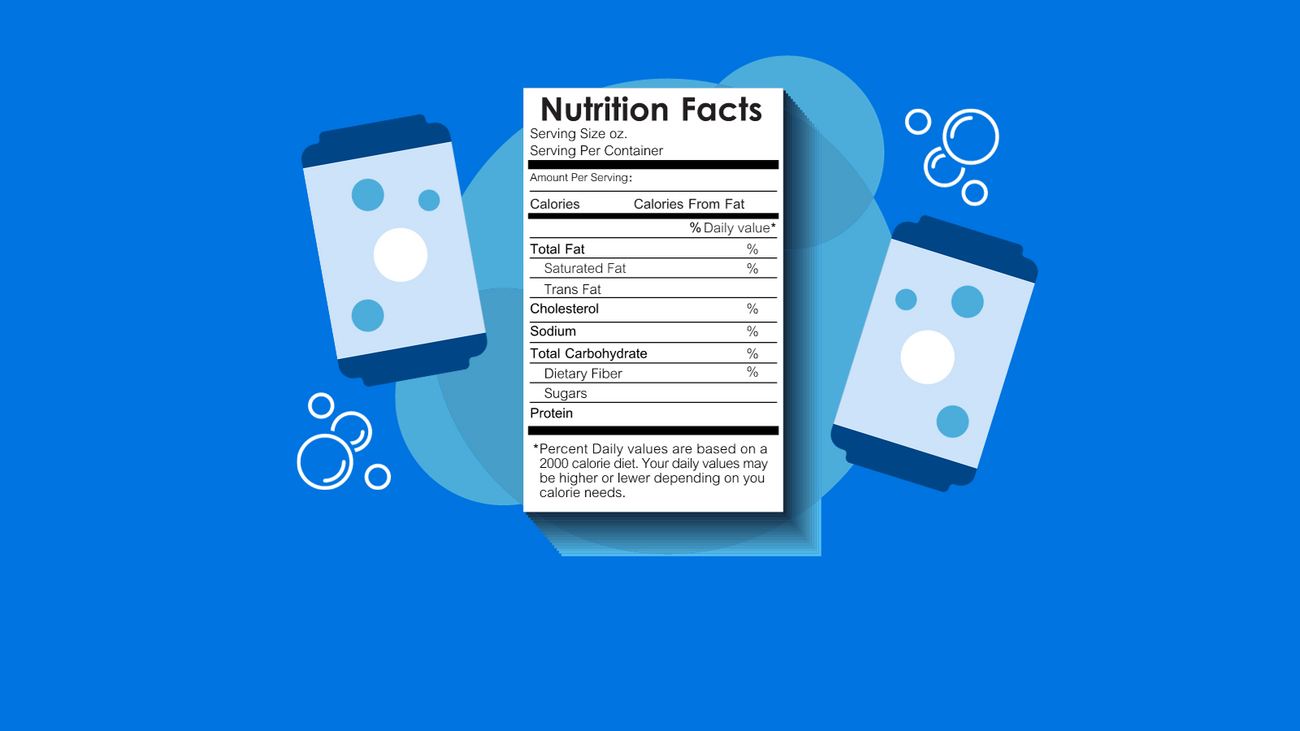
Are there PFAS in sparkling water?
To answer plainly, yes. Numerous sparkling water brands contain PFAS, aka forever chemicals, concentrations exceeding 1 part per trillion, surpassing the recommendations set by the Environmental Working Group.
But that doesn't end the conversation. Let's learn more about the important facts surrounding the ingredients found in commercial carbonated water brands and get to the bottom of why people drink sparkling water made from at-home soda makers.
At Soda Sense, we believe that informed choices lead to healthier living. We encourage everyone to become familiar with the ingredients found on commercial labels so they feel empowered to consume with a clear mind.
Table of contents:

Helpful terminology: When we use the acronym "ppt," we are referring to "part per trillion." This is a term used to measure the amount of PFAS found, in this case, in sparkling water beverages.
What are PFAS?
PFAS, or per- and polyfluoroalkyl substances, are a group of man-made chemicals that have been in use since the 1940s. These chemicals are very persistent in the environment and in the human body, meaning they don’t break down and can accumulate over time.
PFAS are used in a wide range of consumer products, such as non-stick pans, water-repellent clothing, pizza boxes, and even some canned seltzers due to their resistance to grease, oil, water, and heat.
There is evidence that exposure to PFAS can lead to adverse health outcomes.
A new study suggests that eating more fiber—specifically beta glucan, a type found in mushrooms, oats, and barley—may help flush PFAS from your body. PFAS don’t break down and tend to build up in your organs over time. Beta glucan fibers form a gel in your gut that traps these toxins before they can be absorbed.
Here’s how: fiber binds to bioacids, fat-loving substances that PFAS latch onto. Once bound, the fiber carries them out of your body naturally through your stool—helping reduce their buildup in a safe, natural way.

Seltzer water brands that are less than 1 ppt PFAS
Note: it is recommended for products to have less than 1 part per trillion.
- Sound: contains 0 PFAS
- Waterloo: contains 0 PFAS
- Spindrift: contains 0.19 ppt PFAS
- Mountain Valley: contains 0 PFAS
- Proud Source: contains 0 PFAS
- Nixie: contains 0 PFAS
- San Pellegrino: contains 0.31 ppt PFAS
- Aura Bora: contains 0 PFAS
- Sparkling Water Makers: contains 0 PFAS (ensuring you use reverse-osmosis filtered water)
Seltzer water brands that contain more than 1 ppt PFAS
In a report run in 2020 by Consumer Reports, numerous sparkling water brands were tested for PFAS in their waters. The numbers below, alongside each brand, represent parts per trillion:
- Perrier PFAS: 1.1 (Flavor: Natural Sparkling Mineral Water)
- La Croix PFAS: 1.16 (Flavor: Natural Sparkling Water)
- Canada Dry PFAS: 1.24 (Flavor: Lemon Lime Sparkling Seltzer Water)
- Poland Spring PFAS: 1.66 (Flavor: Zesty Lime Sparkling Water)
- Bubly PFAS: 2.24 (Flavor: Blackberry Sparkling Water)
- Polar PFAS: 6.41 (Flavor: Natural Seltzer Water)
- Topo Chico PFAS: 9.76 (Flavor: Natural Mineral Water)
Note: it is recommended for products to have less than 1 part per trillion.
Related read: Is Drinking Sparkling Water Good or Bad for You?
Soda brands with PFAS
The following soda brands (different than soda water) have been tested for PFAS, with the parts per trillion indicated next to each brand:
- Coca-Cola: 4.25
- Diet Coke: 3.54
- Pepsi: 2.89
- Diet Pepsi: 1.73
- Dr Pepper: 2.90
- Sprite: 3.13
- Fanta: 2.45
- Mountain Dew: 2.67
Related read: What Are the Best Alternatives to Soda?
The safest way to control PFAS in your bubbly beverages is to use a sparkling water maker with filtered water. Not only does this ease your mind of contaminants but also rids you of artificial ingredients such as corn syrups and aspartame.

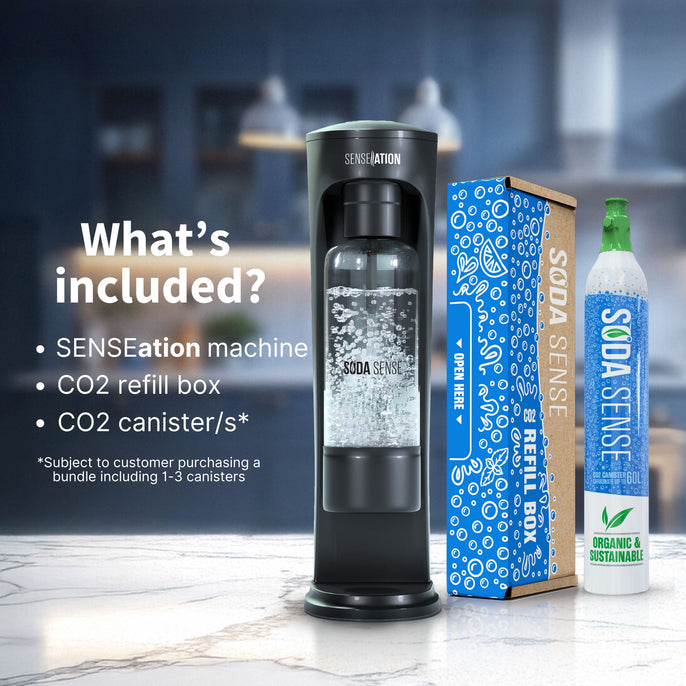
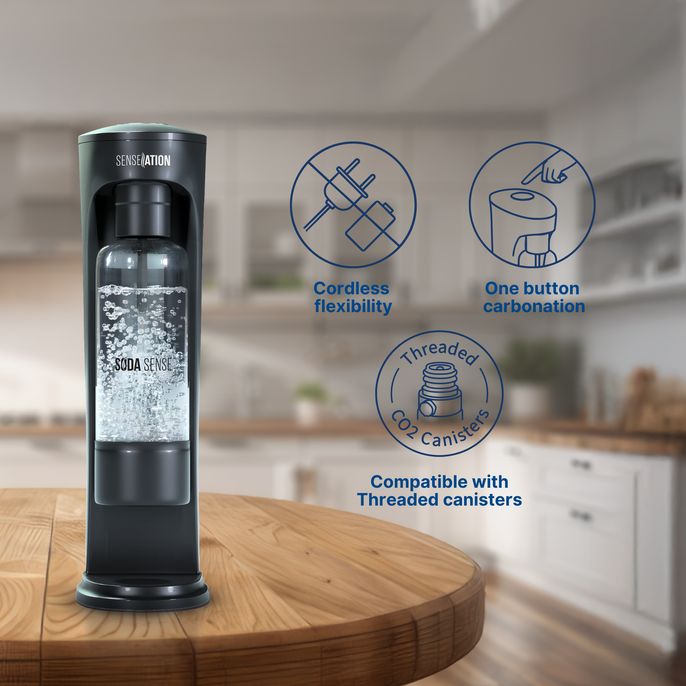
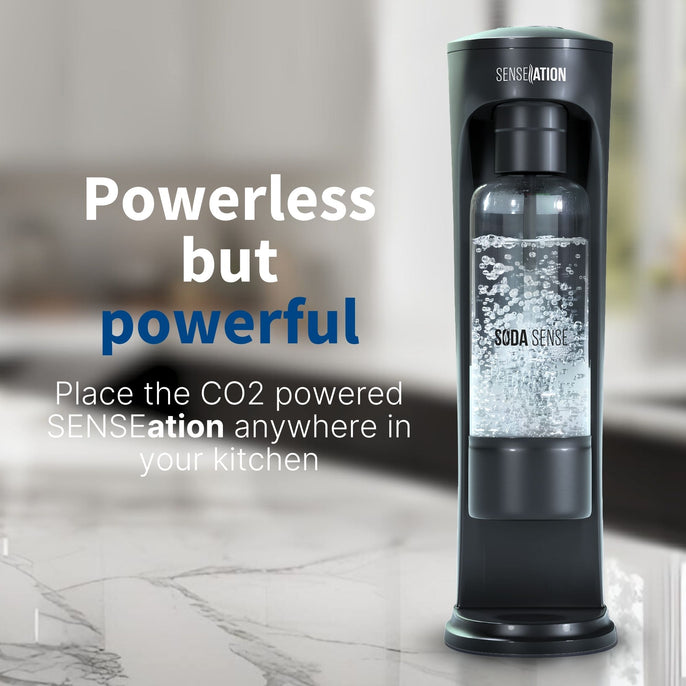
The SENSEation Sparkling Water Maker
What are the lasting health effects of PFAS?
Lasting health effects include, but are not limited to:
- Liver damage
- Harmful to infants and children
- Cardiovascular diseases
Some studies have shown that PFAS have the potential to affect the growth, learning, and behavior of infants and older children. It can also lower a woman's chance of getting pregnant, interfere with the body's natural hormones, elevate cholesterol levels, and affect the immune system.
Long-term effects in extreme circumstances include an increased risk of cancer, particularly kidney and testicular cancers.
It's important to note that the amount and duration of exposure can significantly influence the severity of these effects.
Let's break some of these effects down further so we can fully understand PFAS's impact:

Liver damage
High PFAS exposure can elevate liver enzymes, indicating potential liver damage. This may result in diminished liver functionality, affecting digestion and detoxification processes.
Harmful to infants and children
PFAS pose a significant risk to infants and children, disrupting the body's ability to produce antibodies. This interference compromises the immune system, increasing children's vulnerability to infections.
Furthermore, there is compelling evidence suggesting a correlation between PFAS exposure and the development of attention deficit hyperactivity disorder (ADHD) symptoms in children.
Related read: Does Carbonation Harden Your Ovaries?
Cardiovascular diseases
Increasing evidence shows that extended exposure to PFAS may elevate the risk of developing high blood pressure and cardiovascular diseases.
Research suggests a link between elevated PFAS levels and higher cholesterol levels, which is a significant risk factor for heart conditions.
Related read: Is Carbonation Bad for Your Bones?

Do PFAS cause weight gain?
It can—but I wouldn’t call it that simple. Research shows PFAS chemicals might play a role in weight gain for both kids and adults.
Here’s why: these chemicals can mess with your metabolism. When your body’s normal processes get thrown off, you’re more likely to store fat and experience hormone shifts.
That chain reaction often shows up as extra weight around the waistline—which isn’t just about looks. Belly fat is linked to higher risks for things like diabetes and heart disease.
So no, PFAS don’t directly cause weight gain. It’s more like a domino effect—once your system is out of balance, the problems start stacking up.
Related read: Is Sparkling Water Good for Weight Loss?
Summary
Understanding how to read and interpret sparkling water labels is essential for making informed choices about what you consume. By recognizing potentially harmful ingredients and opting for products with transparent labeling, you can better manage your health.
At-home soda makers offer a controlled, eco-friendly, and cost-effective alternative to commercial sparkling waters. By making your own sparkling water, you ensure the quality of your drink, and contribute to a healthier lifestyle, healthier kidneys, and a more sustainable planet.
Recommended reading
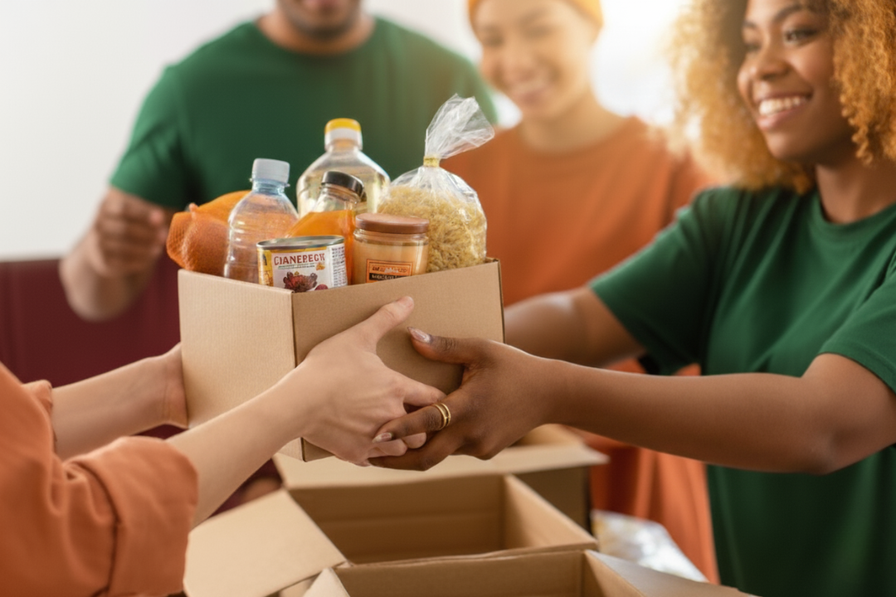
How to Give Back During Thanksgiving 2025
Key takeaways Thanksgiving is a time to express gratitude and share with those in need. From volunteering at local shelters to donating food and essentials, there are numerous ways to give back to...
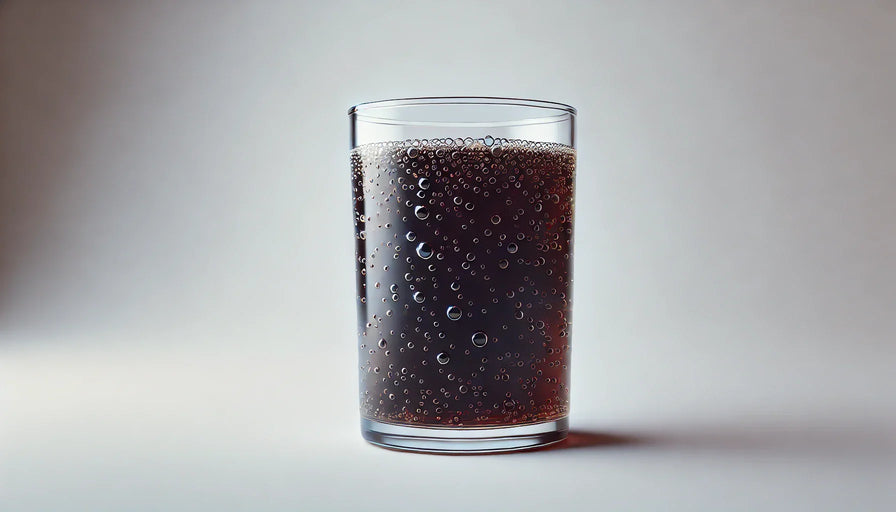
What Does Carbonation Do to Your Body?
What does carbonation do to your body? Carbonation alone typically has minimal effects; however, it can cause bloating and discomfort for some, and it may worsen acid reflux due to carbon dioxide ...
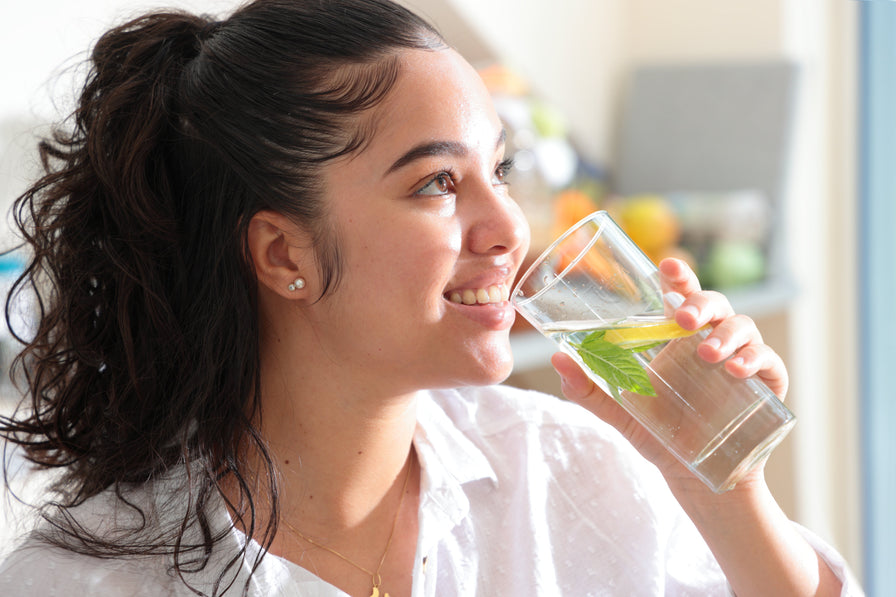
What Are the Health Benefits of Sparkling Water?
Summary Sparkling water isn't just a refreshing drink—it comes with surprising health benefits too. From aiding digestion to improving hydration, discover how sparkling water can be a healthy addi...